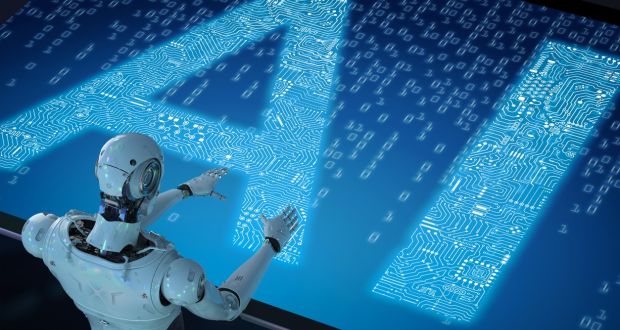Artificial Intelligence, or as it is popularly said, AI, has made strives around the world. From soft wares detecting plagiarism to chat bots to robotic arms, AI is making its presence felt in every sphere on the industry. Companies in a bid to increase productivity and growth are jumping onto artificial intelligence and make a wider impact on their bottom line.

In 2018, over 54 percent companies using AI reportedly had increased productivity, says a research conducted by PwC. Looking at this potential to increase productivity, more companies have incorporated AI as a strategical move for future developments. Today about half of enterprises (with at least 1,00,000 employees) have artificial intelligence-driven processes. Accenture predicts that artificial intelligence will increase labor productivity by 40 percent by 2035.
Further, cognitive technologies such as natural language processing, computer vision, among others are giving shape to new frontiers to augmented productivity. As per markets and markets research, the artificial intelligence market is projected to grow to $190 billion by 2025.
Following are some stats that clearly show the growing dominance of artificial intelligence in the industry.
- Globally, the spending on cognitive and AI systems will reach $57.6 billion in 2021—IDC
- In retail, the spending on AI will increase from $2 billion per year to $7.3 billion per year in 2022—Juniper Research.
- 40 percent of digital transformative initiatives will use AI services by 2019—IDC
- 75 percent of commercial enterprise apps will use AI—IDC
- 72 percent of businesses in the technology, media, and telecommunications expect to have significant impact on their offerings in the next five years.
- Health AI applications will potentially save $150 billion in annual savings for the U.S healthcare economy.
Clearly, this increase in use of artificial intelligence needs talent to drive initiatives. Unfortunately, companies are struggling to find talent in this space. Particularly for the reason that roles in artificial intelligence require a specific set of skills, which are not yet delivered in a streamlined manner. People looking to equip themselves with AI-related skills are approaching AI certifications and other traditional means of training. Online programs, with the flexibility to learn at will, are a preferred means, among millennials to learn required skills. Given the diversity in roles in AI and overlap of skills is also making it challenging for businesses to find right talent to drive AI programs.
Adoption of AI
AI has made a big impact across all industry verticals—healthcare, automotive, media, technology, agriculture, etc. Among these industries, an increase in productivity is the major reason companies plan to use AI. Some companies are simply using AI to stay competitive, while another majority of companies want to use AI to grow and venture into new business.
However, as is expected with every transition, moving to AI has its own challenges. Business leaders, though, are optimistic about the changes that AI adoption will bring, the challenges make it harder to adopt it.
Following are some of the challenges which are faced by companies in the adoption of AI.
- AI and automation will make business operations vulnerable.
- Potential for bias and lack of transparency in adoption of AI.
- Difficulty in integrating cognitive projects with existing processes and systems.
- Lack of understanding of cognitive technologies and their application.
- AI technologies and talent are too expensive
- Unprepared to tackle challenges associated with implementation of AI.
Overcoming these challenges is crucial to businesses, else losses will trump benefits. Skilled talent is an important factor in overcoming these challenges. Companies, however, are facing dearth of talent, which has in turn skyrocketed salaries of AI professionals. To aid artificial intelligence initiatives, companies are scouring talent internationally. This, further has made, talent in this space to put high price tags on themselves.
Growing concern among workers
The rising concern among employees of being replaced is touching new heights. Upcoming and advancing cognitive technologies such as machine learning, robots, etc. have taken the industry by storm and taken it to unprecedented level, where productivity is manifolds. Working with these technologies require a specific set of skills which are hard to come by. Looking at the project demand for AI experts, companies are splurging to train candidates in-house and prepare them for future roles.
In a new research published by PwC, the combination of
artificial intelligence and robotics alone will replace up to seven million
jobs between 2017 and 2037. This helps
industry to reduce cost. However, it will increase spending and generate around
7.2 million jobs.
In a nutshell, the
signs of AI coming of age are clear with the ubiquitous application of AI in
the industry. The talks of AI creating more jobs than displacing, resounds
consolation for the workers at risk of losing their job to automation. Building
new skills and training themselves with the help of AI certifications is a viable option to stay away from being
redundant. Who is to tell— who will keep a job and who will lose it?
